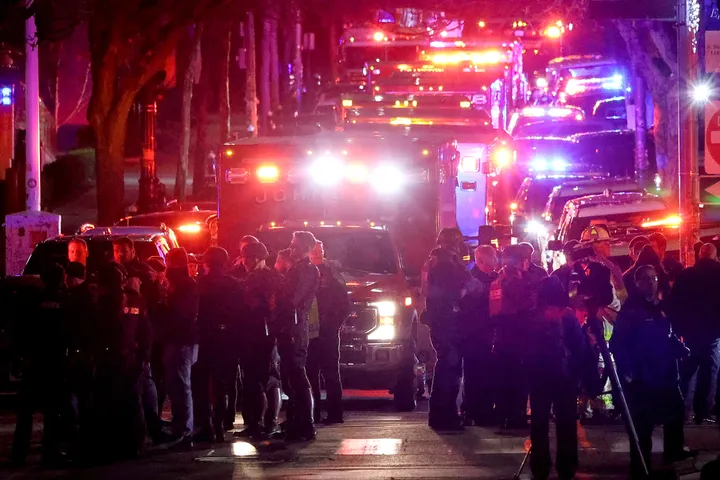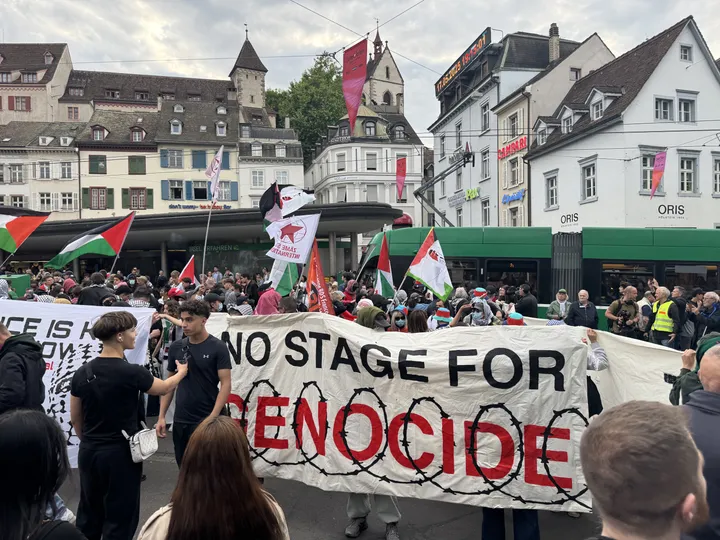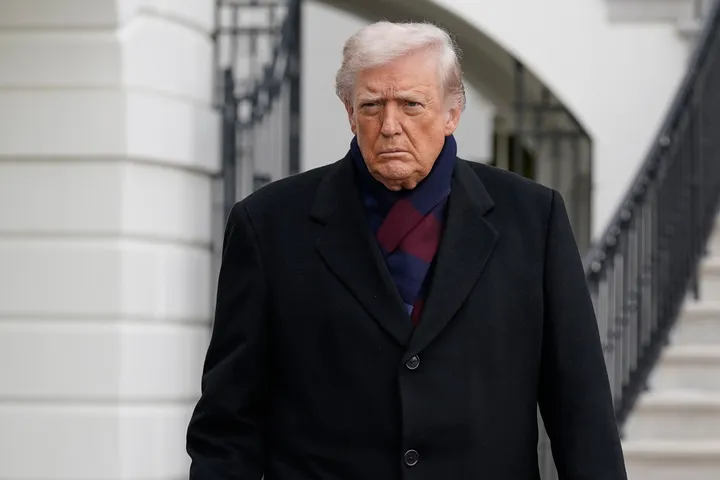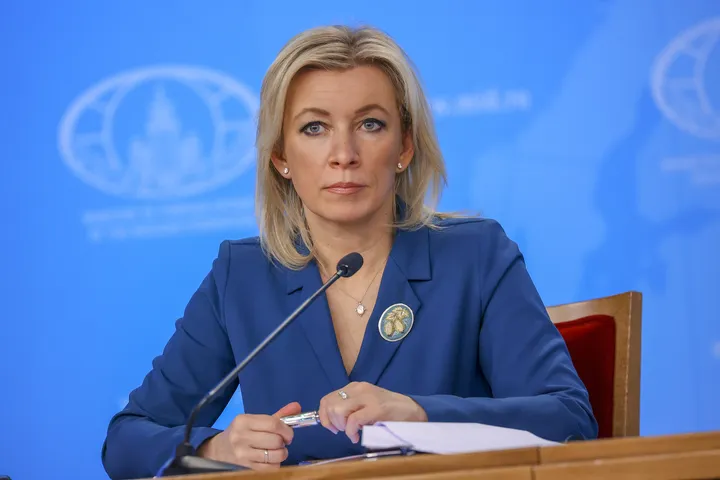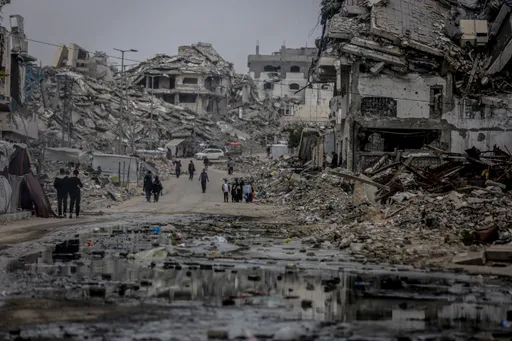On October 20 2017, the US announced that its military operation along with local militants in the Syrian city of Raqqa was over, claiming victory over Daesh.
The four months of intense urban warfare claimed the lives of 1,600 civilians, according to an investigation by Amnesty International.
A year and a half later, the city of Raqqa is now facing a security vacuum similar to the one Iraq faced after the US pulled out its forces in 2010, allowing a radical terror outfit like Daesh to emerge and take over most parts of the country as well as spread into Syria.
The city is full of booby traps, landmines and unexploded shells, posing grave dangers to its inhabitants. Brutal gangs operating in nooks and crannies are posing another challenge while Daesh's sleeper cells continue to operate and assassinate people on a whim.
“We don’t go outside usually after 8 pm in the evening,” said a resident of Raqqa who wished her name to be withheld for security reasons.
“If I have to go outside, I go with friends or family members. I prefer not to walk alone in the streets in the evening hours. It’s so dangerous.”
The resident also said that her cousin was recently kidnapped and the family ended up paying $25,000 in ransom.
"These gangs communicate with the families of kidnapped via WhatsApp, using dummy American or European numbers," the resident added.
Many activists are pointing fingers at the SDF, an American ally which is dominated by the YPG, PKK's Syrian wing.
PKK is considered a terror organisation by the US, EU and Turkey.
Raqqa is Being Slaughtered Silently, an underground network of activists and journalists who brought out news and images of cruelty from the besieged city, published a video of an armed robbery in April this year, exposing three gun-wielding men in fatigues similar to those the SDF militants wear, targeting an owner of a currency exchange shop.
Multiple assassinations have been carried out recently. The most chilling one was the killing of a prominent tribal leader and the member of the Raqqa Civil Council Bashir Faisal al Huwaidi on November 2 2018. The incident triggered public anger and discontent as Bashir was one of the most vocal critics of the SDF rule.
"There are many reasons for the fragility and vacuum of the security situation in Raqqa and the SDF-held areas in general," Abdulwahab Assi, a Syrian researcher and analyst at Jusoor for Studies, told TRT World.
"There is a weakness in the governance on account of the security grip which affects the administrative and organizational work. The negative SDF policy which fosters the ethnic gap between Arabs and Kurds such as conscription since the SDF is dominated by the Kurds."
Assi said another major issue is rising corruption in the SDF ranks. "I know lots of stories of the SDF smuggling ISIS (Daesh) fighters from prisons to [non-SDF held] territories after paying huge amounts of money to corrupt SDF members," he said.
"I don’t think that the American forces which are deployed near Raqqa aren’t able to secure the city, but the US mistake is that they only count on the Kurdish forces which are existing in an area with an Arab majority. The US should change its policy and prevent the SDF from marginalising Arabs."
The battle against Daesh has also left most of the city infrastructure severely damaged. Even high-skilled workers and professionals are now struggling to get by. Some have taken up menial jobs to survive.
Saleh al Omar, 31, a vet whose clinic was destroyed by the coalition warplanes during the Raqqa operation, now works as a taxi driver. He doesn’t have the money to buy new equipment and open a new clinic.
On April 9, at around 2 pm, while al Omar was at a gas station, two women asked him to drive them to a nearby village. They were quick to admit that they didn’t have enough money to pay him. He still offered them a ride, however.
Somewhere along the way, an IED device exploded, injuring al Omar.
“A few hours later, I found myself half deaf," he said.
Since that day, he's been having frequent headaches as the explosion caused injury to his head.
Many of the civilians whose houses were not destroyed by US bombing returned to Raqqa after the SDF assured them safety.
But vast swathes of land and several neighbourhoods with landmines and high-intensity explosives were left unattended, causing several deaths and injuries.
Saleh al Omar, a resident of Raqqa, survived an IED explosion on June 5 2017. The landmine was planted by Daesh and he was on his way to bring his brother’s dead body from al Hisiwa village. It was a time when Daesh was forcibly evicting people from their homes.
Although he's grateful that he’s still alive and working as a taxi driver to feed his children, the violence he's endured continues to haunt him.
“I can’t forget how I risked my life and entered my village and brought my younger brother,” He said. “His blood covered my clothes while I was carrying his little dead body, I will never forget that day”.
On June 1, a suicide attack targeting the al Na’em roundabout shook the entire city of Raqqa, killing at least five residents and five SDF militants, according to the UK-based Syrian Observatory for Human Rights
With the number of returnees increasing, locals fear more violence is likely to occur in the city where at least 350,000 civilians are currently living.
“There is a relative improvement in the security level and the US is training the internal security forces on how to deal with IEDs and detect them In addition to the tactics needed during conducting raids on ISIS [Daesh] sleeper cells and bunkers.” Dareen Khalifa, Senior Syria Analyst for International Crisis Group, told TRT World.
While the post-US withdrawal Iraq like scenario is playing out in Raqqa, experts urge the US to take concrete measures to make the city conducive to peace.
“The coalition should invest more in local security forces to cover the city and its surrounding areas,” Khalifa said.

